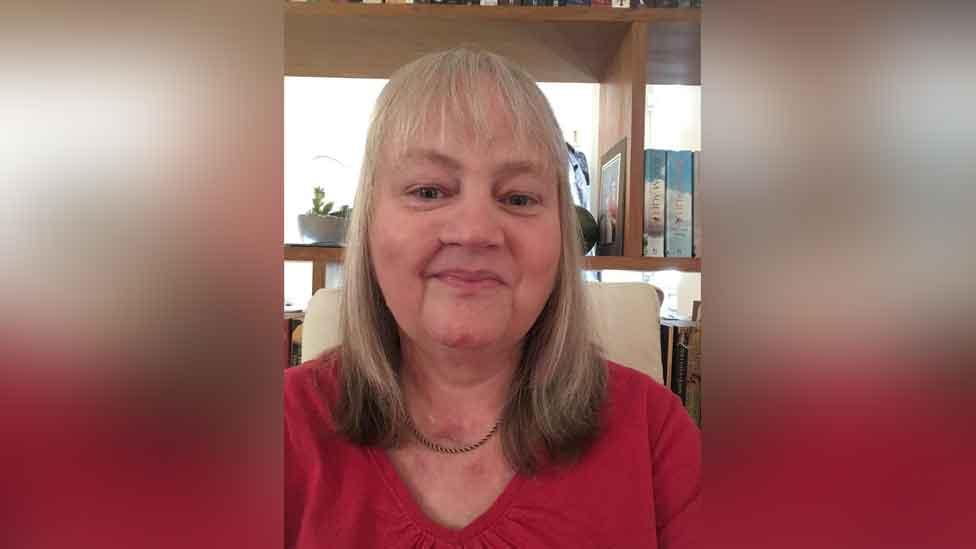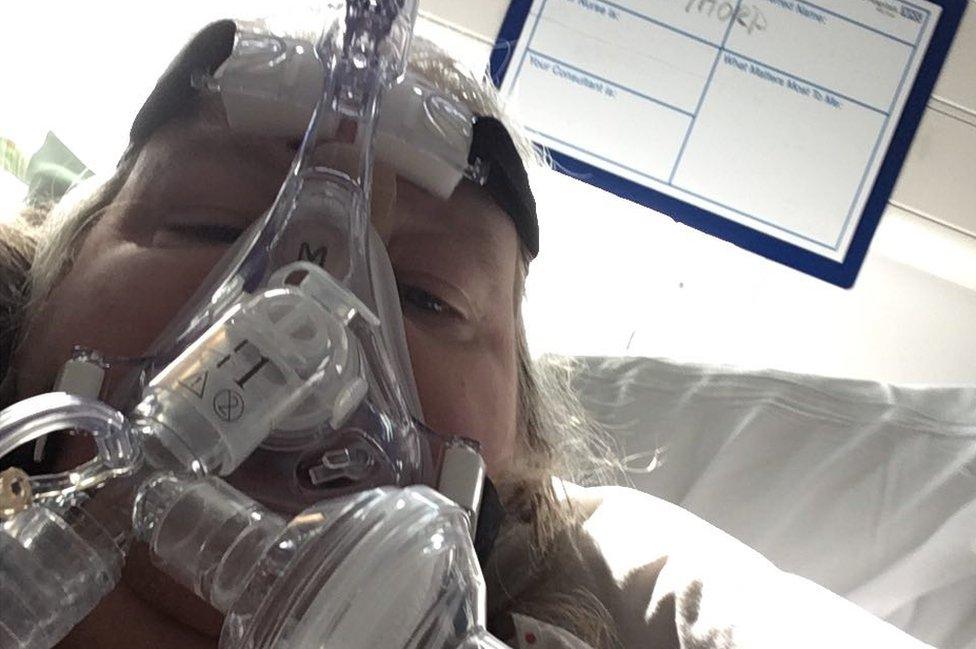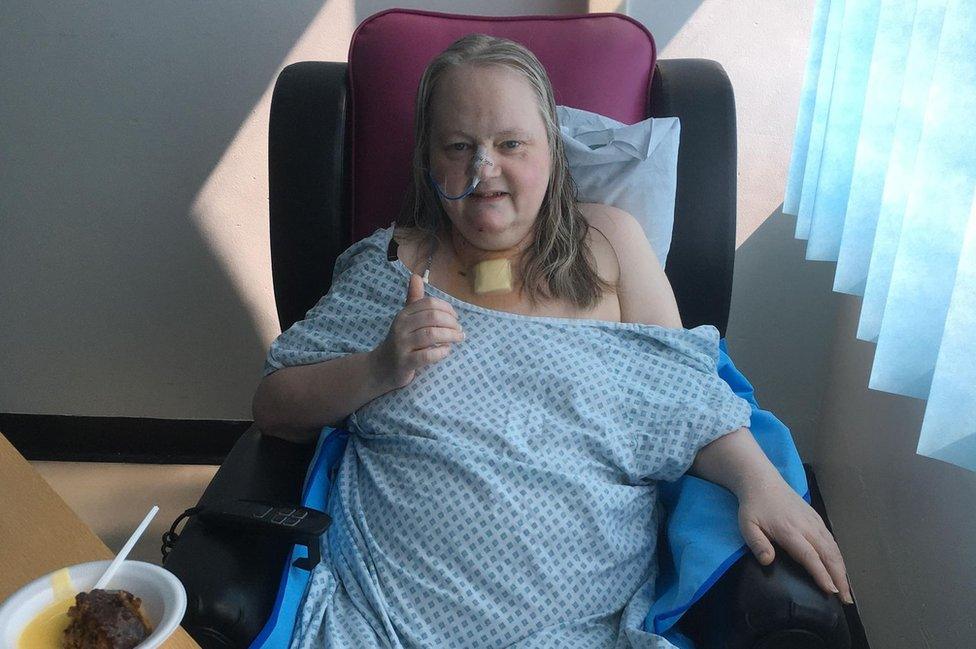Coronavirus: Teacher writes about 'horrendous' Covid-19 battle
- Published

Karen Thorp says she is "extremely happy to be alive"
A teacher who spent six weeks in hospital with coronavirus has written a 3,000-word account of her experience on the advice of medics who treated her.
Karen Thorp, 51, from St Albans, believes she caught the disease in March while attending choir practice.
She left hospital in May after spending time in intensive care and said writing down what happened had helped her cope.
Addenbrooke's Hospital, in Cambridge, said it would use her story to "review and improve" care.
Ms Thorp, a type 2 diabetic, said her first symptom was "a scratchy throat".

Ms Thorp was taken to Watford General Hospital after falling on to her face
Days later, she fell on to her face on her doorstep and was taken to Watford General Hospital after a neighbour dialled 999.
At one stage a do-not-resuscitate order was placed on her when she was moved into intensive care.
She emerged from sedation three weeks later, by which time she had been transferred to Addenbrooke's Hospital.
Now on a phased return to work at a special school, she still has muscle pains, two numb fingers and has had some hair loss.

Ms Thorp was put on a Continuous Positive Airway Pressure machine at Watford General to aid her breathing
Ms Thorp, who lives alone, praised NHS staff who "saved" her life but agreed to share her experience as she thought it would be "useful".
"There were details that were quite important for them to know, such as nurses saying 'don't worry, she is hard of hearing, she can't hear you', when I could hear them, and not changing the date on the wall in the ward which made me confused," she said.
"What was interesting is that until I'd written it down, I hadn't found a way of saying it to anyone else."
It also highlighted a period of time when she was conscious but cannot remember anything that happened, even though she made phone calls and sent photos to her family.
"I can cope with not remembering the three weeks in the ICU (intensive care unit) because I was asleep, but when there's evidence you were awake but you don't remember it, that's hard," she said.
"This is the bit I find difficult, that's harder than anything, so I now realise how important memories are."

There were times in hospital when Ms Thorp found it difficult to even give a thumbs up
On her battle with coronavirus, she said: "It's quite horrendous and people need to know that. It gets the message out there how serious it can be."
Addenbrooke's Hospital said it would "use her story, and others like it, as we continue to review and improve the care we provide".

When she came out of sedation at Addenbrooke's Hospital, Ms Thorp thought she was dreaming
The spokeswoman said many patients were encouraged to write down their memories.
"This can help them to come to terms with their illness, and ultimately assist with their recovery," she said.
Psychologist Dr Nicholas Troop, from the University of Hertfordshire, said there was evidence that "expressive writing" helped people link "facts and feelings".
"Other evidence suggests that writing is helpful when people develop new ways to manage emotions," he said.
But he said it could have negative impacts if people did not use it to develop "new insights or strategies for dealing with emotions".
Ms Thorp said she felt recording her experience was "almost like putting it to bed a little bit".
"It's there to read if I want it, so I don't have to think about it in between," she said.
"Personally, it's been important, cathartic and has made a difference."


Ms Thorp took part in a dress rehearsal for The Merry Widow the day before her first symptom appeared - no-one else in the cast became ill
Extracts from Karen Thorp's account
"My experience of waking up in the ICU is perhaps the most surreal experience of my life. I have never taken drugs but I was convinced that I was in some kind of drug-induced dream state or that someone was playing a very bizarre trick on me."
"In the early hours, I was moved to intensive care, sedated, intubated and put on a ventilator. My family were informed that a do not resuscitate order had been put in place as, if my heart had stopped, there would be no point in attempting to restart it. Thankfully, this was later rescinded."
"The nurse brought a phone over telling me that my sister was on the other end. I remember her sounding upset, telling me that everyone was sending me so many messages of support and that she and everyone loved me."
"Another overriding memory of that time is of sitting in a chair rather than lying on a bed. I had an iPad attached to a metal arm in front of me. Playing on the i-pad were... old episodes of Top of the Pops from the 1980s. My sister was told by the nurse on the phone that I was mouthing along to the words of the songs. This was a great relief to my family as they knew this meant that my brain was functioning."
Read the full story here, external.
